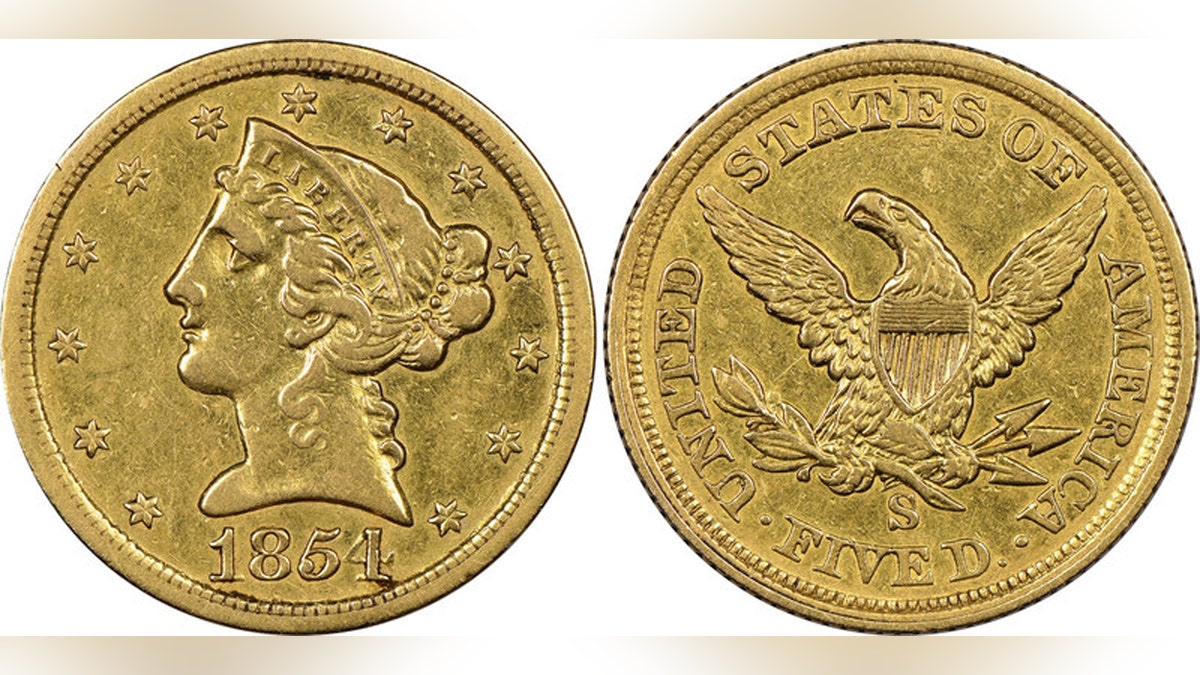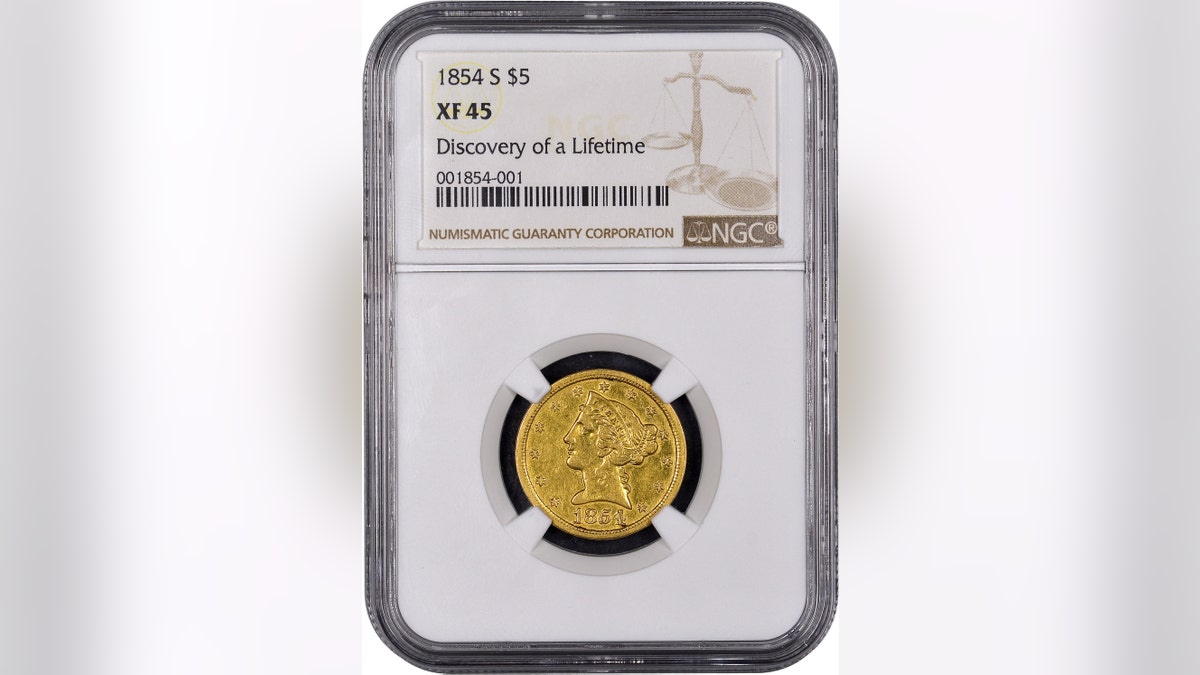
Mistakenly believed by its owner to be a fake, this historic gold coin now has been authenticated as "the discovery of a lifetime" by Sarasota's Numismatic Guaranty Corporation. It is only the fourth known surviving example of a $5 denomination coin struck at the San Francisco Mint during the California Gold Rush in 1854. (PRNewsfoto/Numismatic Guaranty Corporation)
Next time someone tells you to keep the change, maybe you should listen to them.
A New England man, who has requested to remain anonymous, believed a small gold coin with a $5 denomination from the San Francisco Mint during the height of the California Gold Rush was a fake. It turns out he was wrong and the coin is now estimated to be worth "millions of dollars."
Numismatic Guaranty Corporation (NGC) certified the extremely rare coin as genuine, making it just one of four known in existence. "It's like finding an original Picasso at a garage sale. It's the discovery of a lifetime," said Mark Salzberg, NGC Chairman in a statement.
MEDIEVAL 'POT O' GOLD' DISCOVERED BY CONSTRUCTION WORKERS
Slightly smaller than the modern quarter-dollar, the coin was minted in 1854 and has amazed its anonymous owner.

Mistakenly believed by its anonymous New England owner to be a fake, this historic gold coin now has been authenticated as âthe discovery of a lifetimeâ by Numismatic Guaranty Corporation (www.NGCcoin.com) in Sarasota, Florida as only the fourth known surviving example of a $5 denomination coin struck at the San Francisco Mint during the California Gold Rush in 1854. It is worth millions of dollars, according to NGC. Photos courtesy of Numismatic Guaranty Corporation www.NGCcoin.com. (PRNewsfoto/Numismatic Guaranty Corporation) (Credit: Numismatic Guaranty Corporation)
"He was stunned when we informed him that it is a genuine, multimillion dollar rare coin," Salzberg added. "He had shown it to a few collectors and dealers at a recent coin show, but everybody said they thought it was a fake because until now there were only three genuine surviving 1854 San Francisco Mint $5 gold pieces known."
Mint records indicate that just 268 of these coins were made in the San Francisco mint in 1854, the first year they were produced.
The other known coins in existence have a storied history. One is located at the National Numismatic Collection at the Smithsonian Institution in Washington, D.C., and another was stolen from the DuPont family in 1967 and has never been recovered, according to news.com.au.
In total, the thieves stole more than 7,000 rare coins, including the incredibly rare $5 piece, known as a Liberty Half Eagle. Once the authenticators determined that this was not the stolen DuPont coin, they were eager to prove the authenticity of the coin.
TROVE OF ANCIENT 'FREEDOM COINS' UNEARTHED IN JERUSALEM
“We look for common things that you’ll see between the coins. You’ll see the four in the digit is slightly attenuated or not as high in relief as the regular part of the four. We noticed that was exactly the same as the Smithsonian piece,” NGC president Richard Montgomery told Gizmodo.
"Our initial reaction on examining the coin was utter disbelief that a rarity of this magnitude could still be discovered in this era," Montgomery added in the statement. "But upon seeing the coin in person for the first time, it was apparent that the coin is genuine."
Follow Chris Ciaccia on Twitter @Chris_Ciaccia